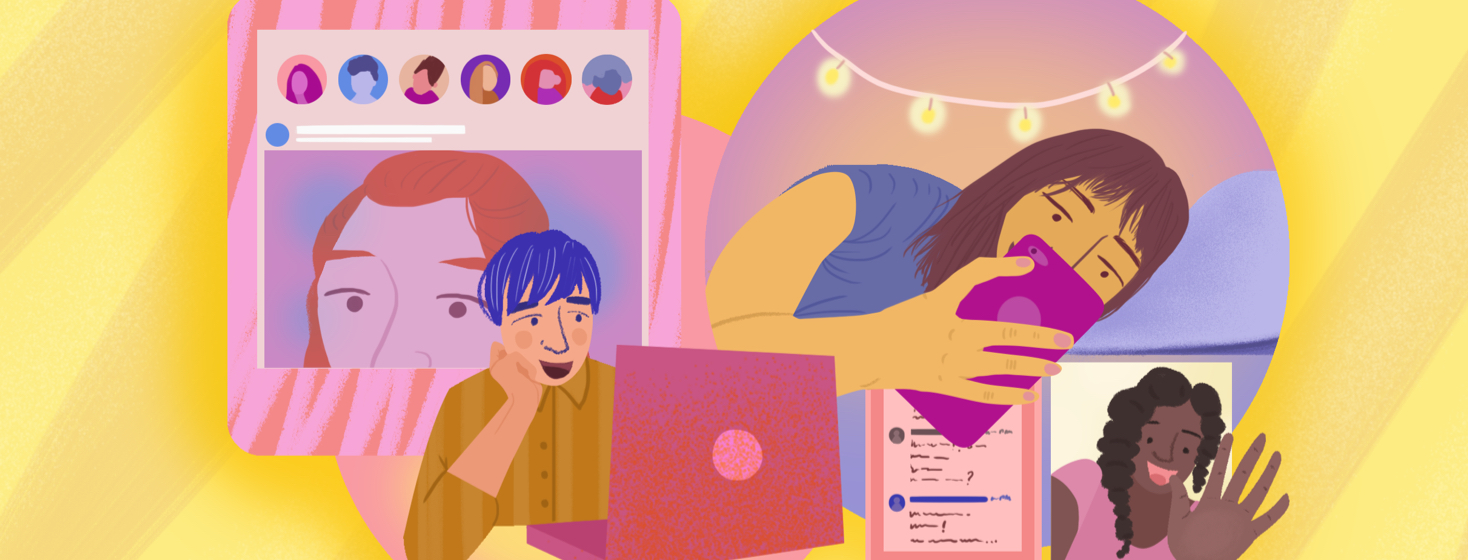What I Learned From Lupus Advocates During Our Instagram Live Event
I am continuously impressed by my fellow advocates here on Lupus.net. I enjoy reading their articles, and I'm encouraged when I learn about their life experiences with lupus.
Recently, I joined Cay and Meghan for an Instagram Live event to kick off Lupus Awareness Month. During the conversation, I learned several things from them and wanted to share some of their helpful stories about living with lupus.
Valuable lessons from my fellow lupus advocates
On being diagnosed with lupus
During her search for a diagnosis, Cay talked about how she felt like she was just being "patched up" for years. When her doctors would say words like "idiopathic" or "loose connective tissue," it would sound too much like they were saying, "I don't know." She didn't accept that and kept searching for answers.
Meghan talked about being dismissed by doctors who would blame her symptoms on stress, depression, or even homesickness. Yet, she was going through a serious flare where lupus attacked her brain and made it difficult for her to do many things, such as speak words with multiple syllables.
Cay, who previously worked as a nurse, said many of her friends in the medical field didn't know about lupus. They had an expression, "Rheumatology is the dark arts." The statement underlines how much work there is left to do to educate others about lupus.
It feels unfair that we have to search and fight so long for the answers that we deserve, especially as women who all too often have our symptoms blamed on hormones.
On lupus flares
One great point brought up by Cay was that the frequency of lupus flares could change over time. Five years ago, I was living in an almost continuous flare, but now I only have around 5 flare days per month, and I have friends that only have 1 or 2 flares a year.
Cay mentioned that she’s more likely to have a flare if she doesn't "behave" (and let's be honest, it’s very hard to follow all the rules of lupus) but that she helps herself get out of flares by forgiving herself and letting go of any associated guilt. It's okay to want to do it all - we're only human, but don’t forget that it's not your fault you have lupus.
In my lupus support group, we talk about "premed" often, but we're not talking about heading off to medical school. We're talking about pre-medicating when you know you're about to go through something that’s stressful on your body. Many of my friends do this before a visit to the dentist for various reasons, including the bacteria released during a cleaning. It's one way we try to stop flares from starting in the first place.
Another example is that women who take steroids during pregnancy usually need a stress dose during labor to help their bodies cope with the extra physical stress and need for adrenaline. I do this on a much smaller scale by taking flare medications preemptively when I know I’m about to have an exceptionally difficult day.
On lupus treatments
Meghan talked about having bad experiences with prednisone, which I think far too many of us can relate to. I experienced a lot of rage while taking prednisone. Meghan was a bit scarred by her experience, and it left her feeling opposed to trying other lupus medications.
After a move and a new doctor, she was willing to try a different steroid called methylprednisolone (Medrol). Like Meghan, I also fared better after trying Medrol. It’s natural to want to avoid meds after a bad experience, but try not to let one medication dictate the control that lupus has over your life. I’m currently trying to put this lesson into practice in my own life after having difficulty with excessive sweating due to a side effect of treatment.
Reflecting on what we wish we knew at the beginning
Meghan and Cay both shared great insights on this topic. A few of them were:
- Don’t skimp on sleep. Of course, this is easier said than done, but remember to validate and prioritize your need for sleep.
- Grief may hit you hard at first, but it will get better over time. (And if it doesn’t, I highly recommend seeing a therapist to work through it.)
- You will get smarter when it comes to lupus, and you will learn how to manage it better. I was very grateful to hear this from two women who are further along in their lupus journey, as I still struggle physically nearly every day.
- Despite lupus, you can reach a point where you are emotionally stable and happy overall - many of our advocates are living proof of this.
My answer to the question, "what do you wish you knew about lupus when you were initially diagnosed?" was that I wished I had known more about lupus from people that actually had it. After diagnosis, I went directly to medical resources, and while I learned from that information, I didn't have any personal examples of people living through lupus.
This sentiment still rings true today - learning from others with lupus can sometimes be more valuable than learning about all the medical complexities. Especially when it comes to learning how to cope and knowing that you’re not alone.
I'm so glad I was able to glean wisdom from Cay and Meghan during our Instagram Live event, and I encourage you to join the next one, which focuses on mental health. It’s being held on May 25, 2022, at 7:00 PM ET.
Check out the full video below! Have any questions for our advocates? Let us know in the comments.
View this post on Instagram

Join the conversation